Science - Chemical Sciences: 10 Lesson Plans + 1 Summative Assessment Task + Worksheet Suggestions (Year 7)
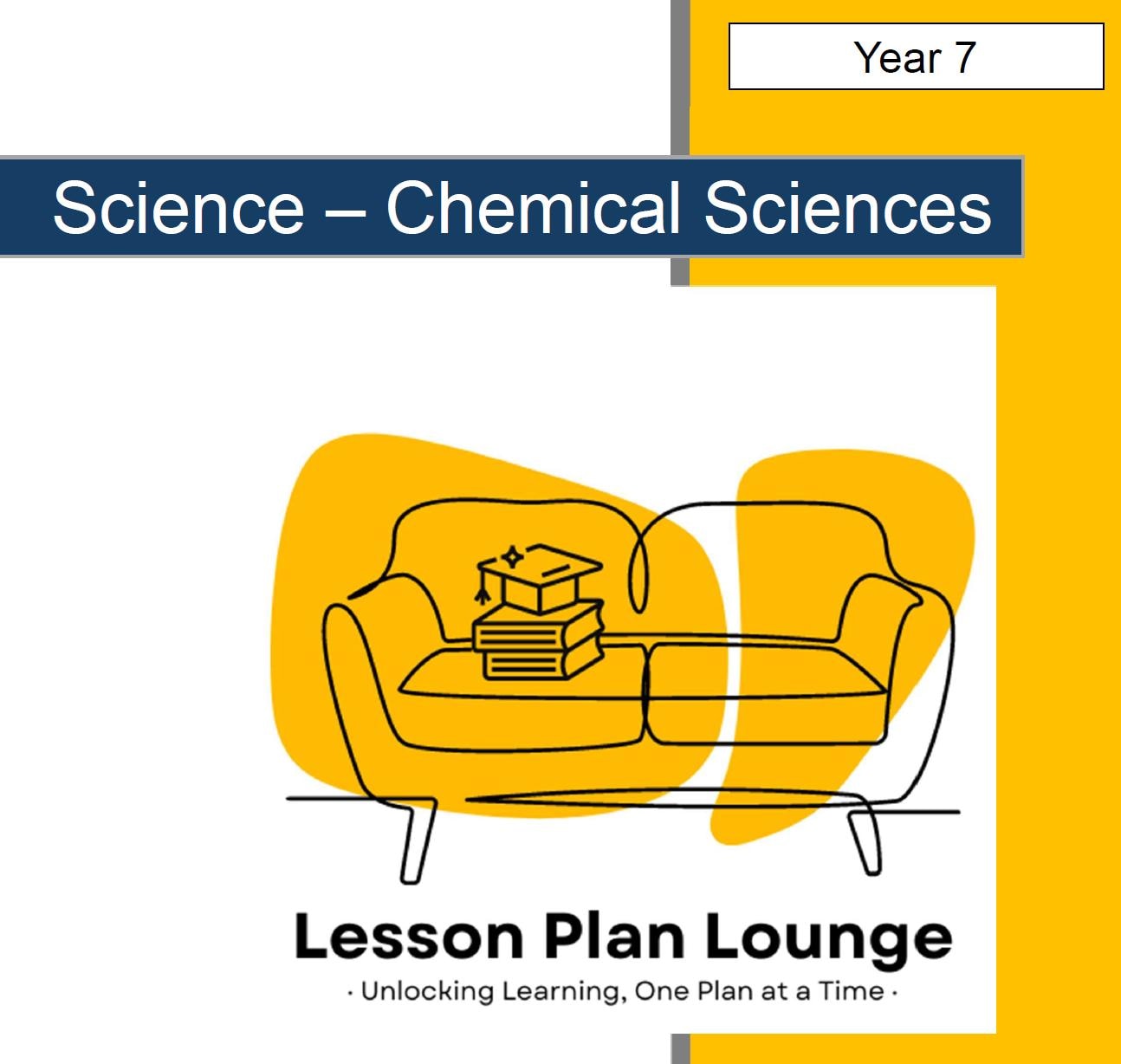
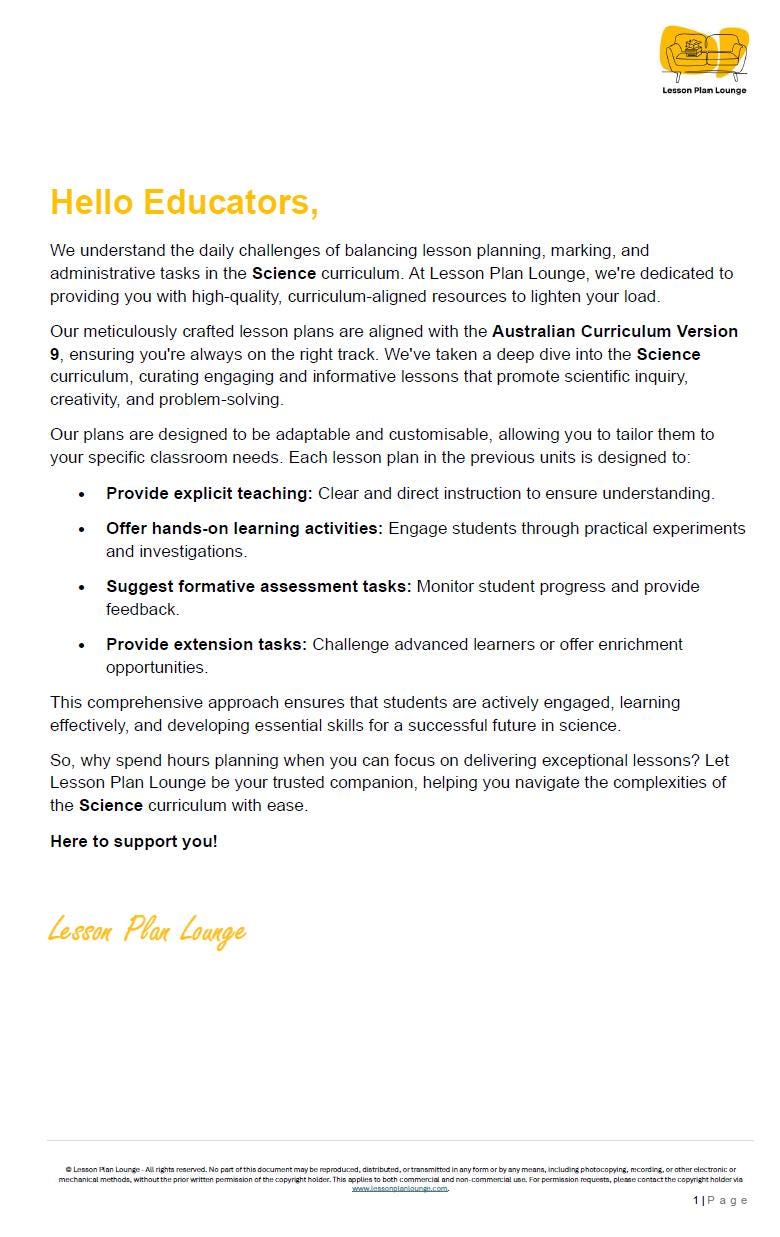
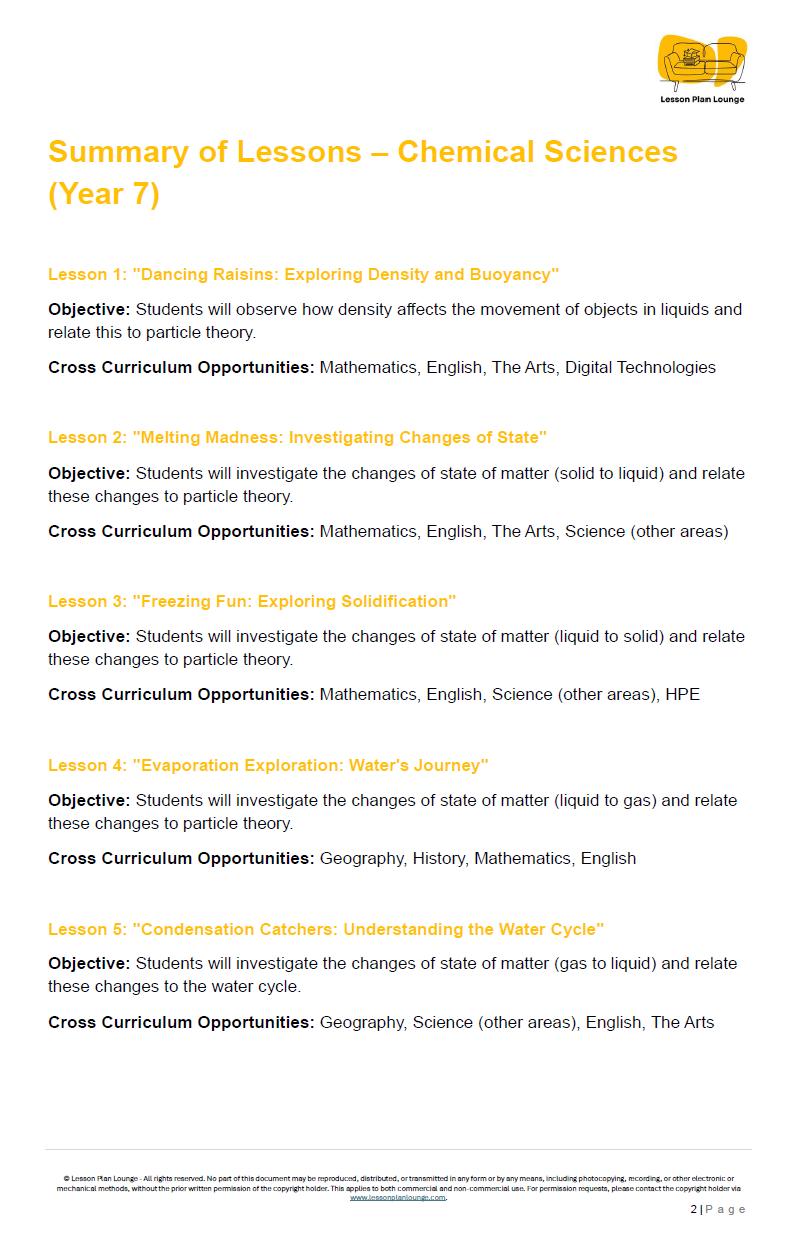
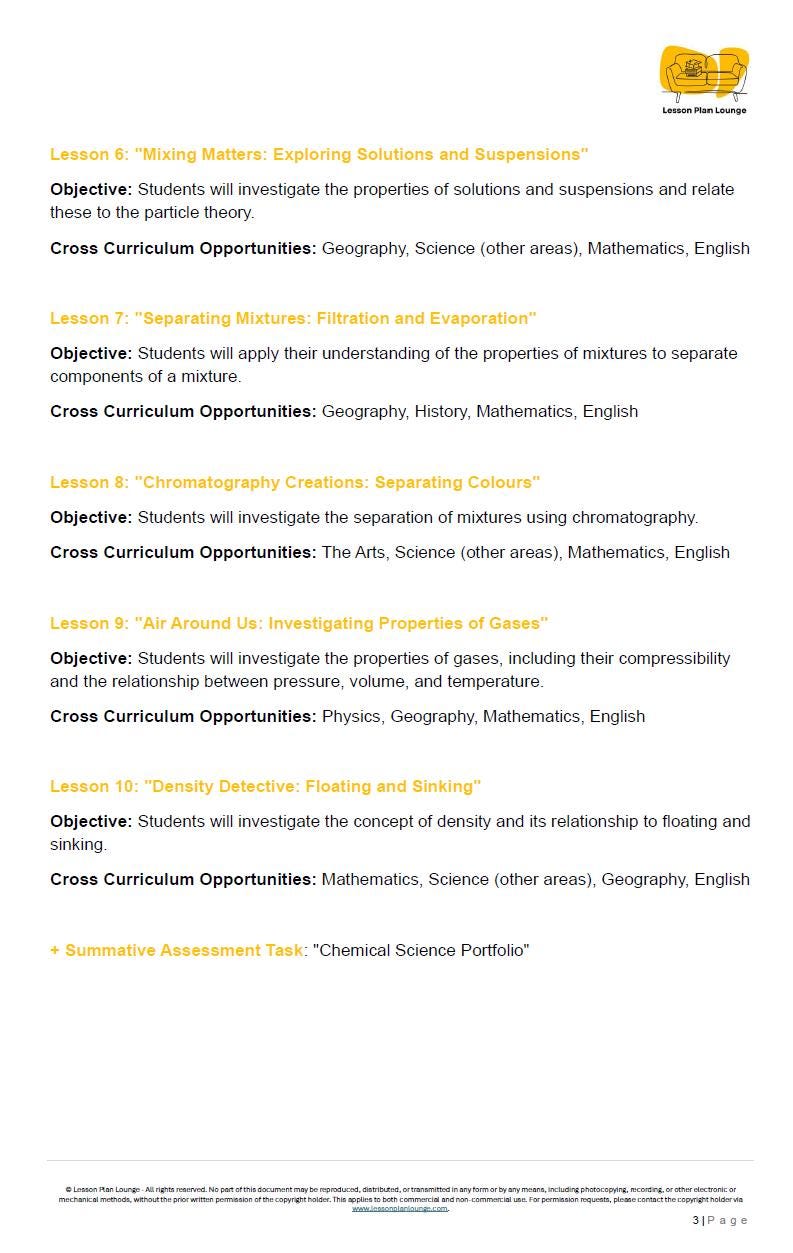
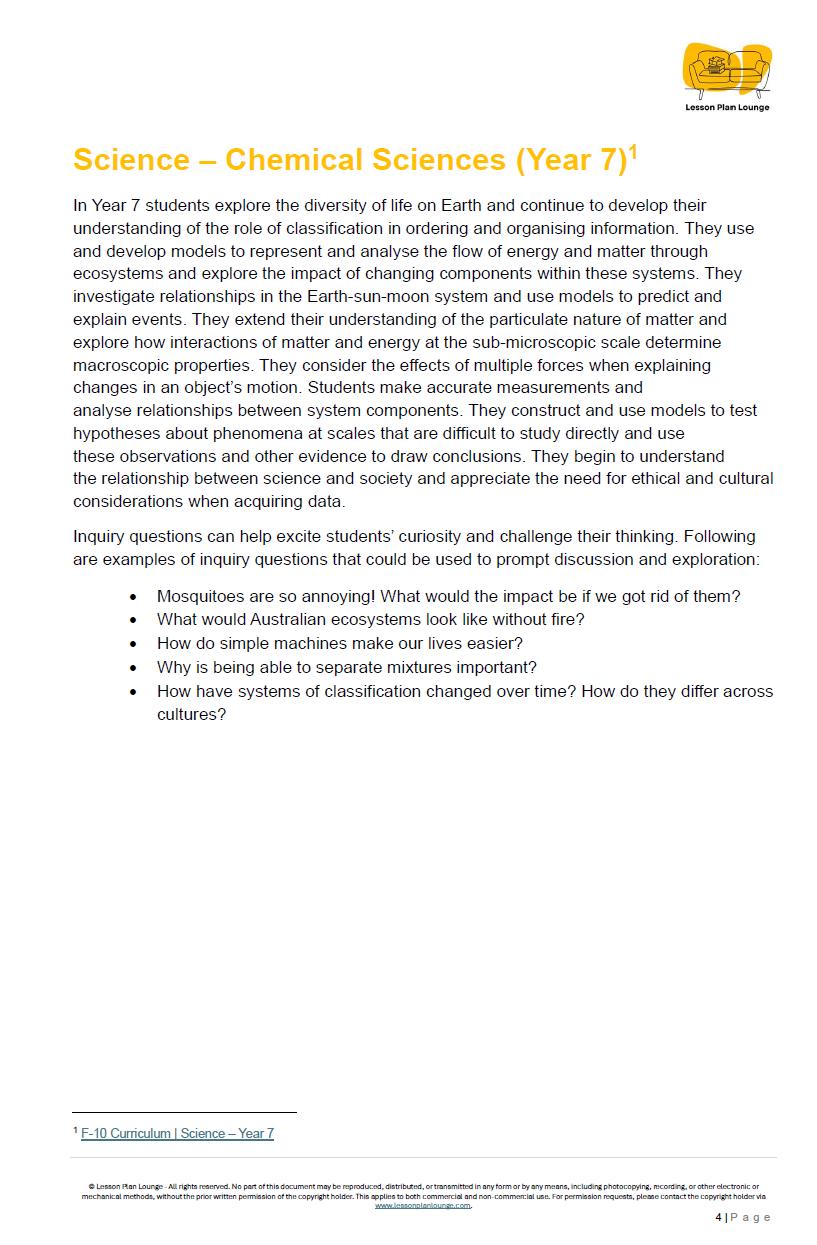
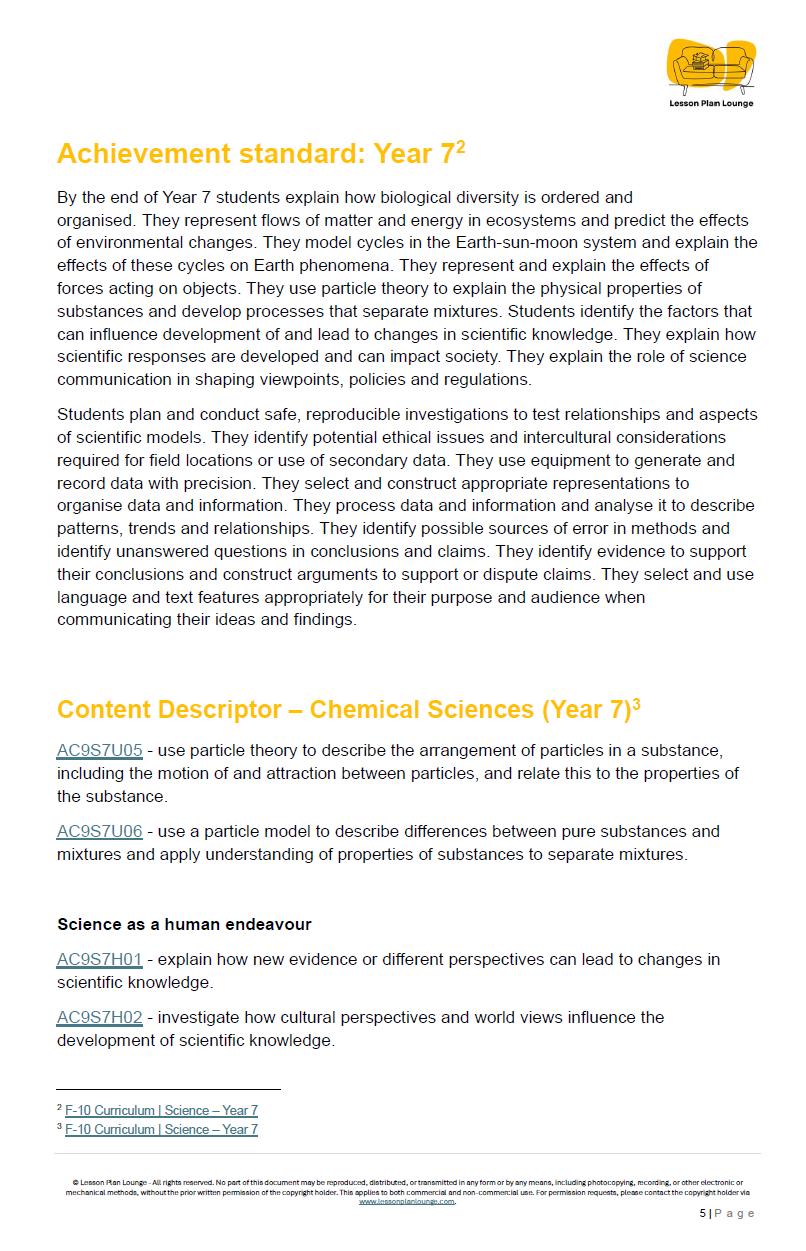
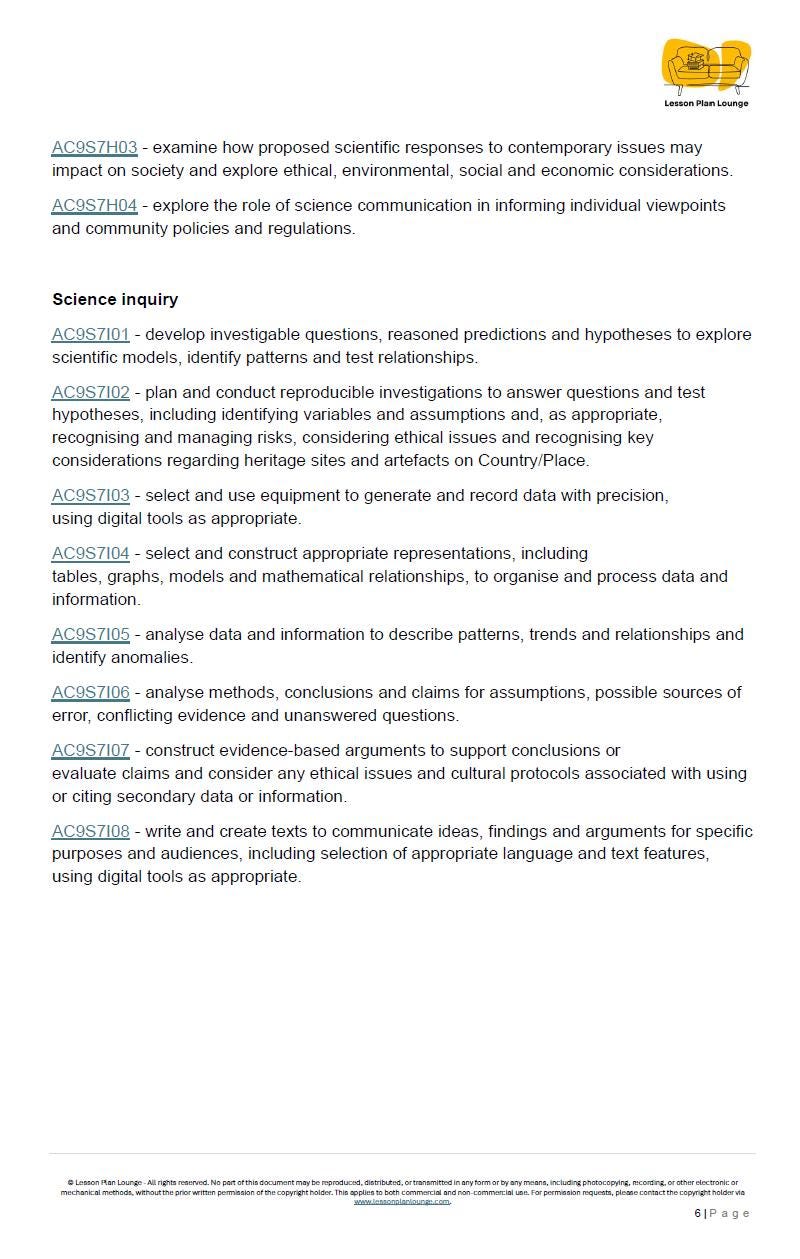
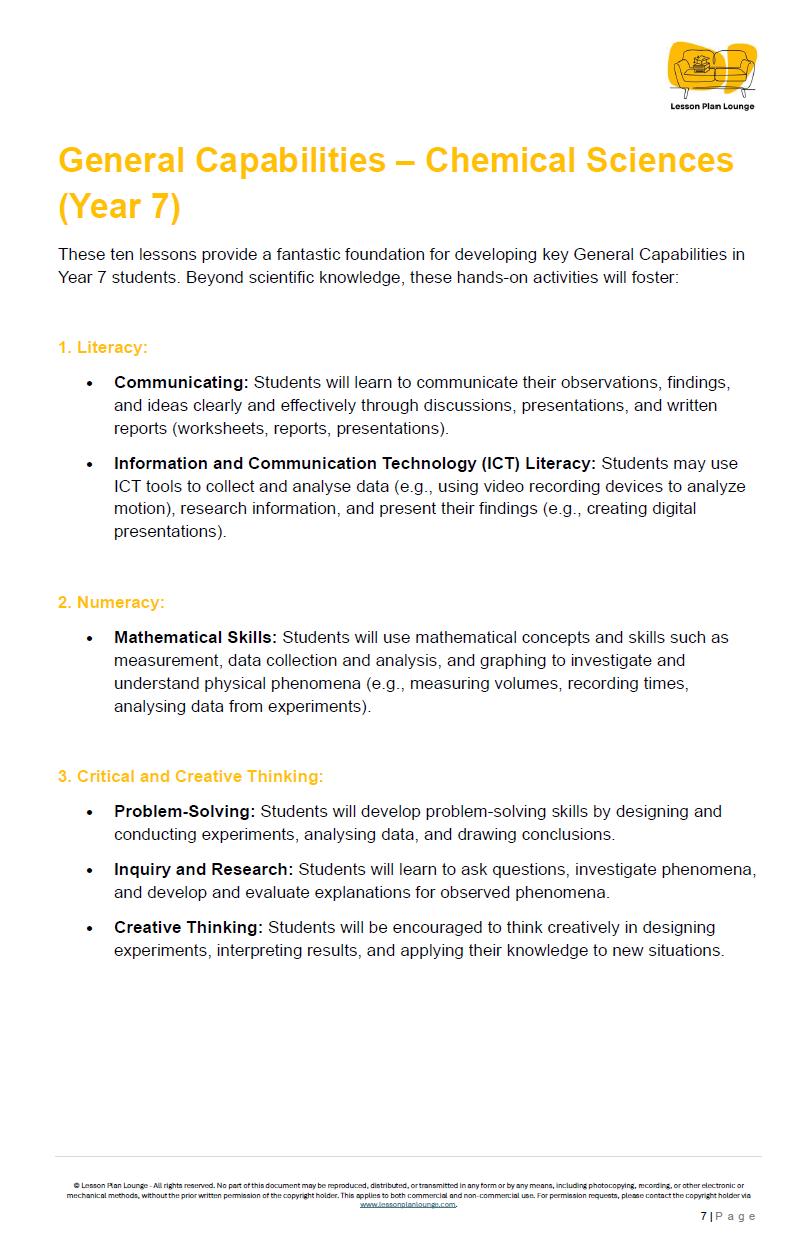
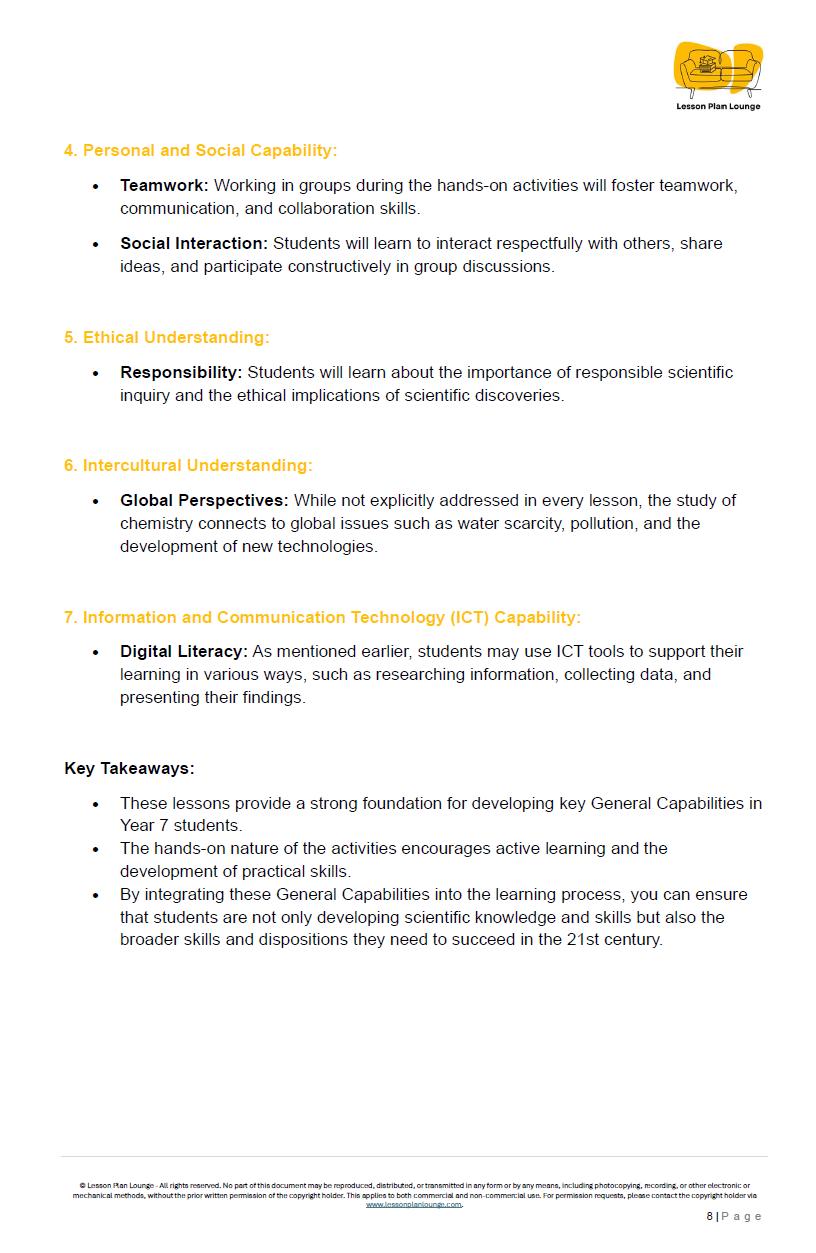
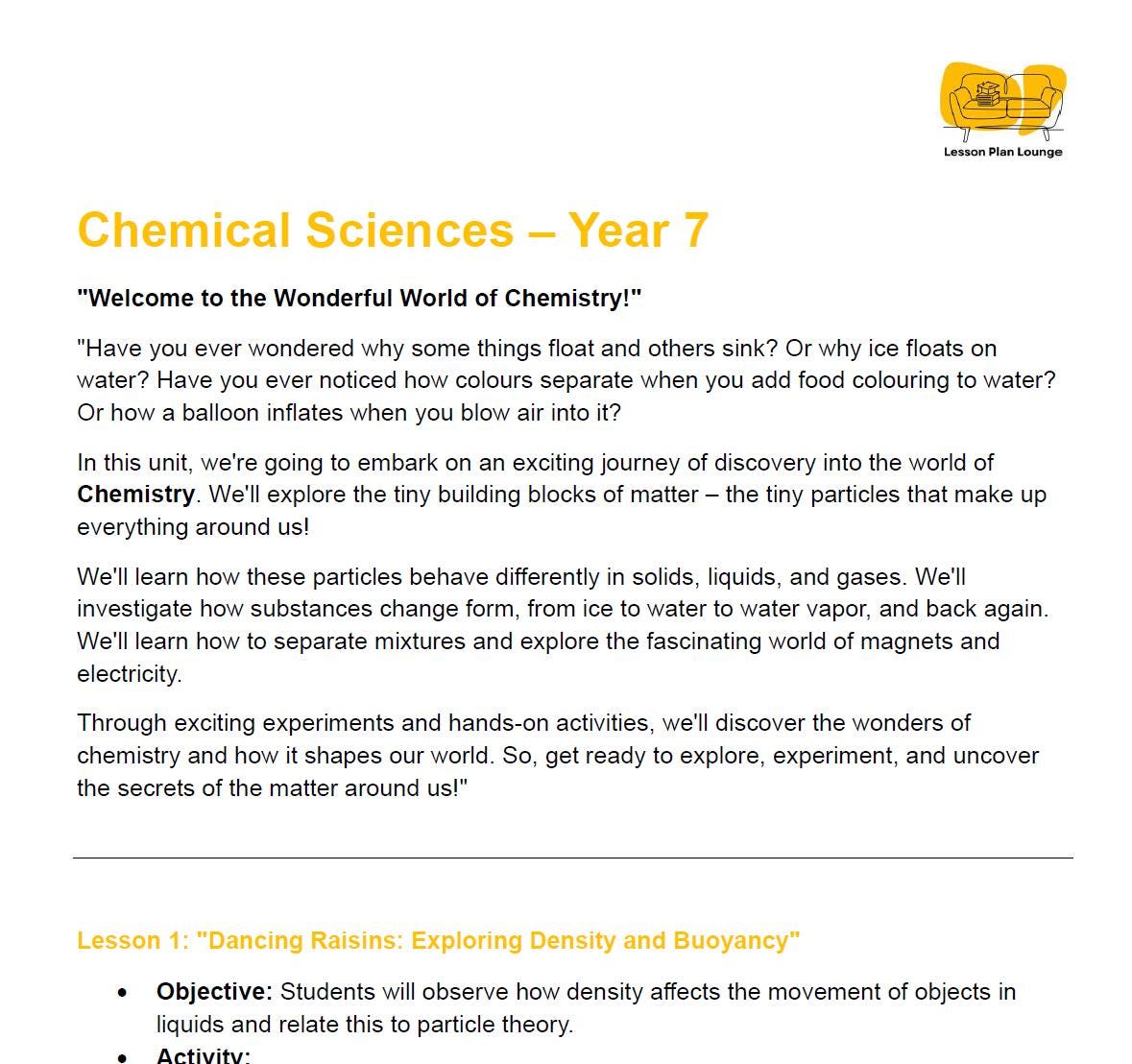
$5.81
Science - Chemical Sciences: 10 Lesson Plans + 1 Summative Assessment Task + Worksheet Suggestions (Year 7)
Covering:
AC9S7U05 - use particle theory to describe the arrangement of particles in a substance, including the motion of and attraction between particles, and relate this to the properties of the substance.
AC9S7U06 - use a particle model to describe differences between pure substances and mixtures and apply understanding of properties of substances to separate mixtures.
Science as a human endeavour
AC9S7H01 - explain how new evidence or different perspectives can lead to changes in scientific knowledge.
AC9S7H02 - investigate how cultural perspectives and world views influence the
development of scientific knowledge.
AC9S7H03 - examine how proposed scientific responses to contemporary issues may
impact on society and explore ethical, environmental, social and economic considerations.
AC9S7H04 - explore the role of science communication in informing individual viewpoints and community policies and regulations.
Science inquiry
AC9S7I01 - develop investigable questions, reasoned predictions and hypotheses to explore scientific models, identify patterns and test relationships.
AC9S7I02 - plan and conduct reproducible investigations to answer questions and test hypotheses, including identifying variables and assumptions and, as appropriate,
recognising and managing risks, considering ethical issues and recognising key
considerations regarding heritage sites and artefacts on Country/Place.
AC9S7I03 - select and use equipment to generate and record data with precision,
using digital tools as appropriate.
AC9S7I04 - select and construct appropriate representations, including tables, graphs, models and mathematical relationships, to organise and process data and
information.
AC9S7I05 - analyse data and information to describe patterns, trends and relationships and identify anomalies.
AC9S7I06 - analyse methods, conclusions and claims for assumptions, possible sources of error, conflicting evidence and unanswered questions.
AC9S7I07 - construct evidence-based arguments to support conclusions or
evaluate claims and consider any ethical issues and cultural protocols associated with using or citing secondary data or information.
AC9S7I08 - write and create texts to communicate ideas, findings and arguments for specific purposes and audiences, including selection of appropriate language and text features, using digital tools as appropriate.
Including: hands-on activities, explicit teaching content, formative assessment options, differentiation strategies, extension tasks, summative assessment (incl. marking rubric), cross curriculum opportunities, outdoor learning opportunities, early career/ real life education (related jobs) and materials needed (per lesson).
Also included: Summative Assessment Task and Worksheet Suggestions for this unit.
(71 pages)
